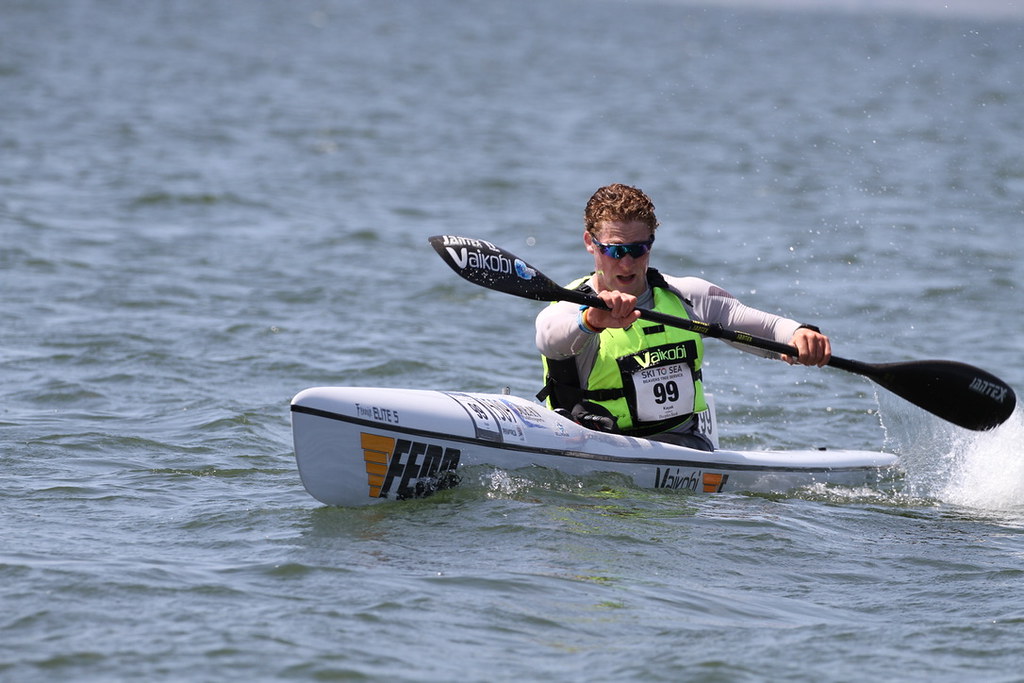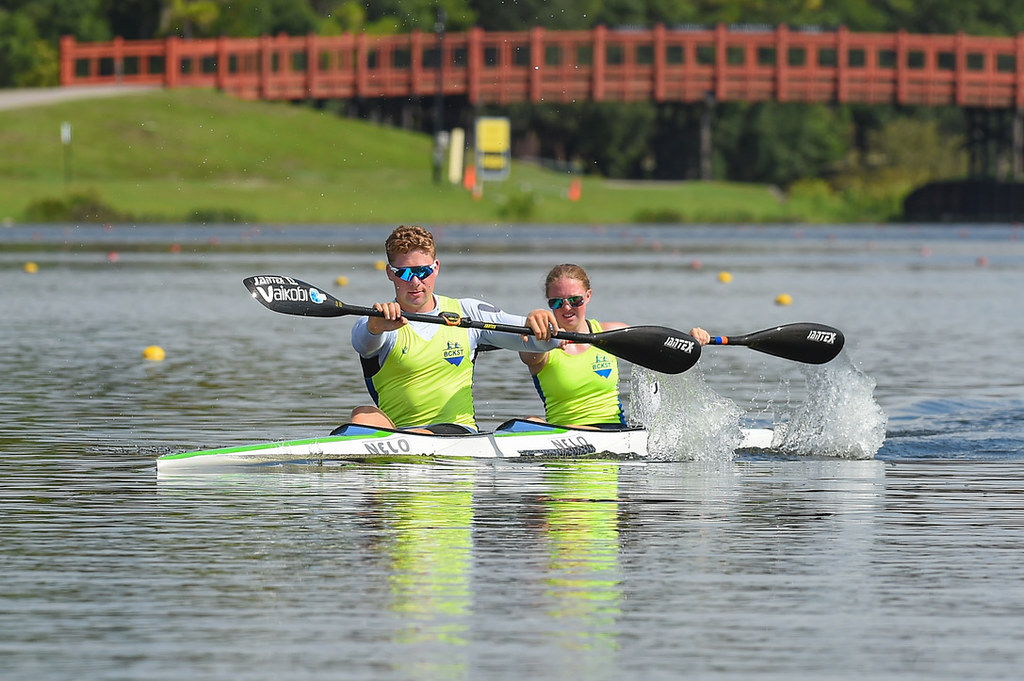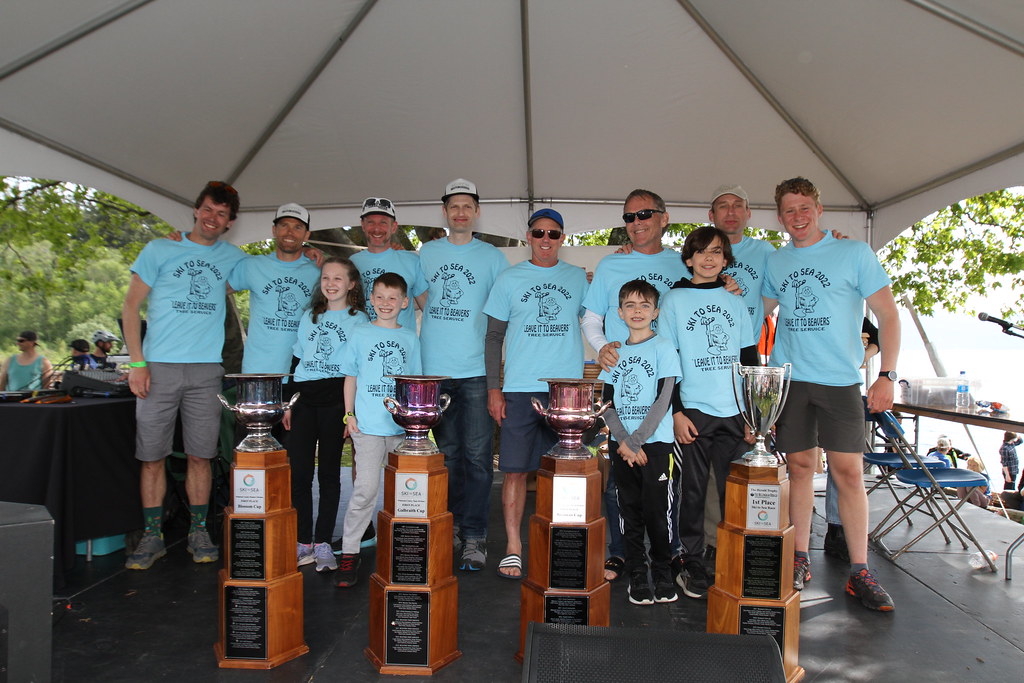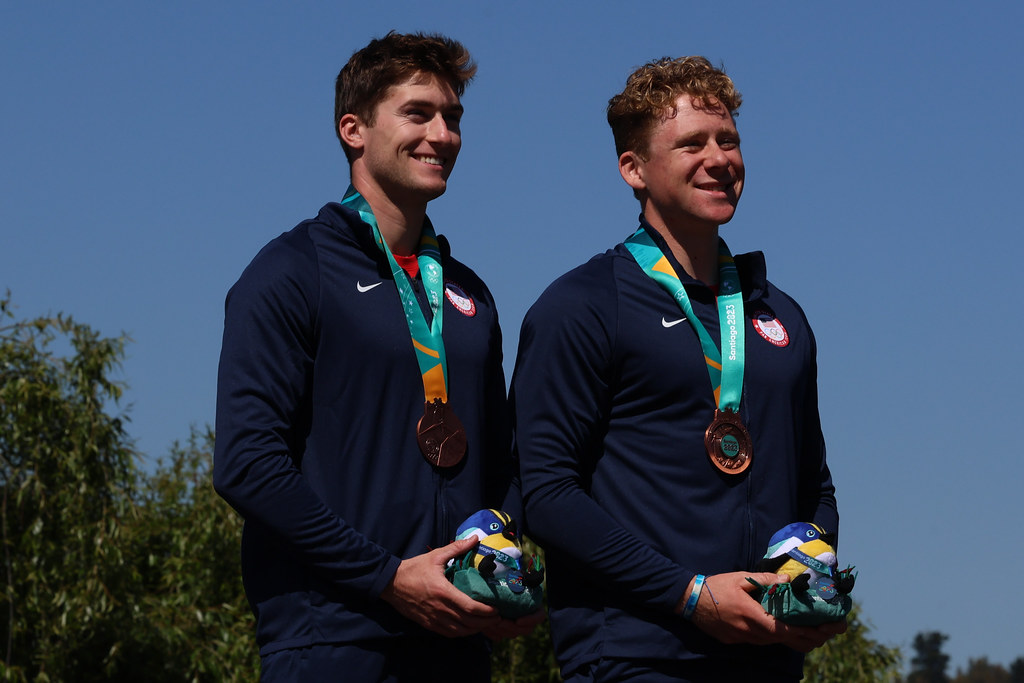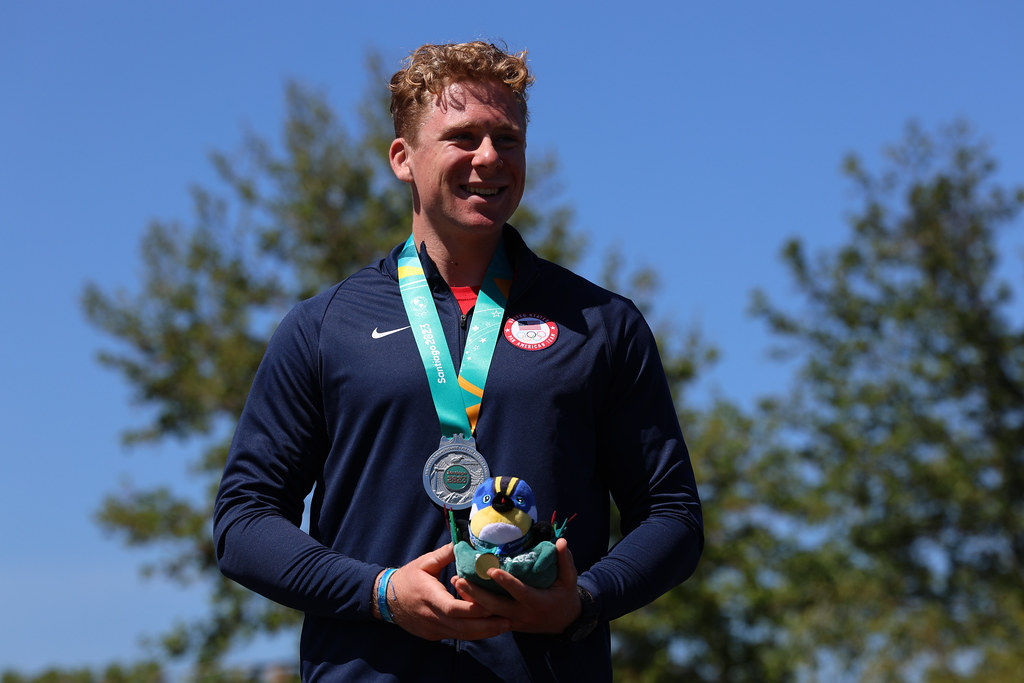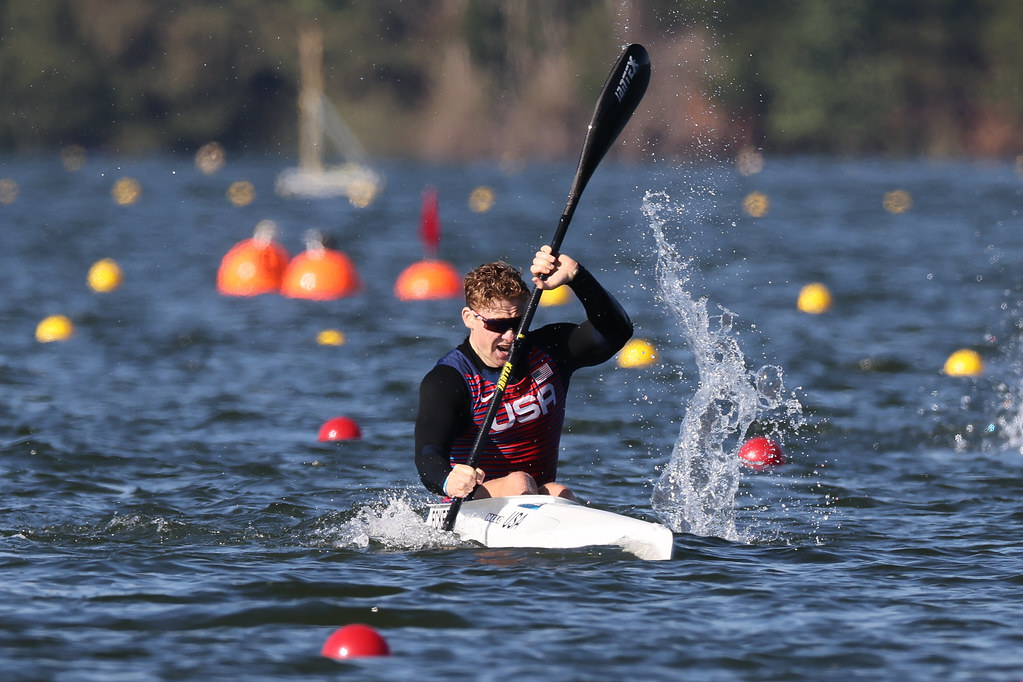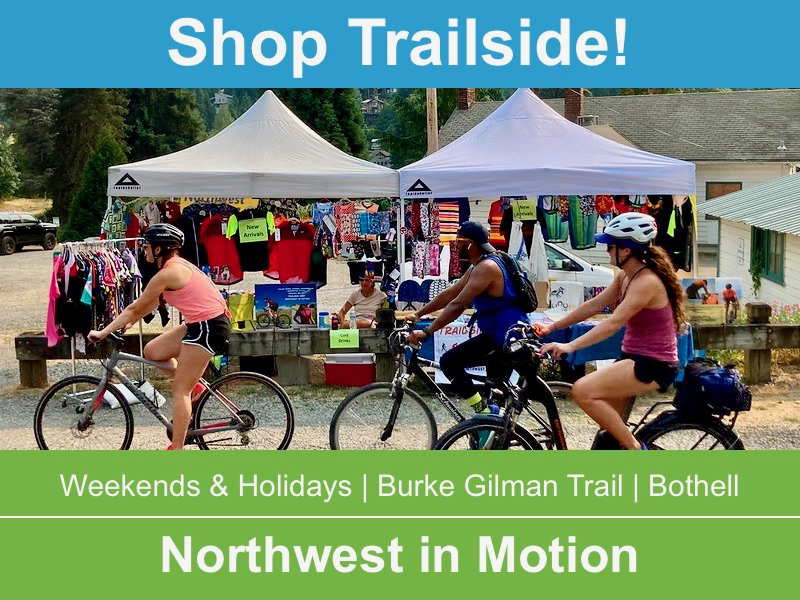We first touched base with Jonas Ecker in 2018 when he was just 15 years old, and starting to show real promise of being able to compete in paddling at the world level.
A Bellingham native, Jonas is now at the University of Washington, and although UW doesn’t recognize paddle sports, he’s been able to chart a course that may very well take him to the 2024 Olympics in Paris.
Jonas’ credits his parents as a major factor in his success. Both are athletes. His mom rowed as a student at Washington State University, and his dad Brian “Wrecker” is a formidable athlete across multiple sports. Brian also has decades of coaching experience, and is Jonas’ primary coach.
How did you get in to paddling sports?
My mom originally rowed at “Wazzu” Washington State University, and after graduating she and my dad moved to Bellingham. She initially continued her rowing in a flatwater single scull. At that point she was pretty much doing it on her own since at that time there was no rowing club in in Bellingham. The Whatcom Rowing Association was yet to form.
On top of that, dealing with a boat was always a hassle, or too much of a hassle, to get it from the house, rig it, de-rig it, and transport it back and forth from the lake. It was always more of a chore than something enjoyable.
Around that same time my dad was competing in various multi-sport races, and soloed the Bellingham Traverse multisport race, which includes a kayak leg. I remember him telling me the story of how he was doing pretty well–as he’s known to do–and on the last (kayak) leg, he kept getting passed by these guys who were paddling, what were at the time, super fancy carbon kayaks. He was like “what are these things?”
After that he bought our first surfski to aid in his multi sport race pursuits. My mom tried it and she got back into paddling.
In 2013 the Bellingham Canoe Kayak Sprint Team started in Bellingham. I joined one of their one of their first summer camps that was about a week long. I proceeded to stick with the team, and have been training and racing for them ever since.
Now going into 2024, this is my 11th season with the team which is pretty crazy to think about. During that time. I have grown from being just a kid doing it for fun, to then competing at local events, at national events, and representing the USA both at World Championships and with the US Olympic and Paralympic delegations to the Pan American Games. This doesn’t yet make me an Olympian, but I’m hoping to qualify for the Paris Games this summer. We’ll see how everything pans out.
For readers who may be unfamiliar, what is the difference between paddling and rowing?
A lot of times “paddling” and “rowing” are used interchangeably. Rowing, which is a much bigger sport in the United States by both athlete number and recognition, is done as singles, pairs, doubles, fours, quads, and eights using single-bladed oars. These boats are often steered and directed by a coxswain. The boat is moving backwards relative to the athletes propelling it. That is, the rowers face opposite the direction of travel.
On the other hand, in paddling we compete in team boats as well as in singles, doubles, and fours, but with two-bladed paddles. Paddlers do not use coxswains, and they steer the boats themselves facing the direction of travel.
Both rowers and paddlers (or kayakers), race on very similar courses and often the same courses. Sprint kayakers race distances of 200 meters, 500 meters, and 1000 meters, while rowing courses are typically 2000 meters.
What is your life like as a student-athlete?
Since sprint kayaking is a niche sport, we’re not recognized by many collegiate institutions, and we’re not affiliated with the NCAA or any other collegiate athletics organizations. This requires a lot of advocacy on the part of the athlete, as well as communication with the faculty and other people in my departments that are relevant.
I have been super lucky to have very accommodating faculty at the University of Washington where I am completing a Bachelors of Science in Marine Biology with a minor in Chemistry. They have all been super helpful in the marine bio department, as well as the chemistry department in helping me stay on track with both of my degree plans and with general coursework. When I’m traveling for competitions it’s very challenging at times to balance and I guess better say juggle a full-time job as an athlete as well as a full-time job as a student. That can be a feat in time management.
But by increasing both academic and athletic levels since high school, I feel that I’ve been able to develop skills along the way that have benefited me both in in the classroom and on the water. I’ve been able to make the most of the time I have, especially just being able to self-motivate, and develop lots of self discipline. A lot of the time, I’m training alone or without a coach with me directly on the water.
I think all in all, my goal as an athlete and as a student is to not pick one or the other. I feel a lot of the time I am prioritizing my athletic career over school but but at the same time I don’t want to sacrifice or compromise my future by not having that academic career and so I’m doing everything I can to excel in both areas.
What is your training like?
Training for canoe sprint or sprint kayaking obviously involves a lot of time in the boat on the water.
I supplement the on-water training with strength building in the gym, doing various exercises–some which are sport-specific–focusing on core stability and rotational strength to emphasize that connection between the blade and the boat. I do a lot of cross-training. I like to bike when I can. Nordic ski skate skiing is great because it involves the lats which are a huge part of paddling.
That all comes together in a structured training plan that I write in cooperation with my dad as my primary coach. Together we develop the week-to-week plan, the month-to-month plan, and plan the bigger picture to make sure I’m primed and ready to go for competitions and doing what I need to get myself in the best shape possible to perform at my best.
I’m also lucky enough to be working with Chris Drescher at the University of Washington. In my strength programming, she has been phenomenal in helping me be a little more deliberate and effective in the gym, both in how I’m structuring each workout, but then the greater periodization of that training as well.
I usually want to get in the water twice a day, lift weights three times a week, and some cross-training with cycling or Nordic skiing sprinkled in there to add some variety. These workouts range anywhere from staying in a zone, to a cruise, to focusing on technique, to a full lactic session at race pace till you can’t really go anymore. I think a lot of paddling, as is the case in a lot of elite athletic sports, is you kind of have to enjoy the suffering and the pain to be successful and to progress. You’re not going to get better unless you hurt yourself in those specific ways that put you just at the edge, but not quite over. It’s all about kind of walking that fine line, as I think most athletes can relate to.
What do you enjoy about competition?
Sprint kayaking events are conducted in similar ways to a track meet or swim meet where you have preheats, prelims, semifinals, finals and so on. And in a similar way, we compete on laned courses which are often nine across, and we race distances of 200 meters, 500 meters and 1000 meters in the sprint discipline. For fun, I also like to compete in surfski races, which are over longer distances anywhere from 5000 meters to 20k. Those often occur in open ocean or more versatile conditions, while sprint kayaking is most often on flat water, ideally flat water on protected channels, or manmade courses, or lakes.
What I also love about competing is the variety of competitions we get to attend. I’ve been lucky enough to compete at the local level, with my club, the regional level at bigger events, as well as national and international levels. Since I started paddling in 2013 I’ve been lucky enough to represent the US national team in some capacity since 2018, where I made the junior national team. And then more recently, in 2022, I had my first season on the senior and U23 national teams, where I’ve been able to compete at various levels of international competition.
In the past few years, I’ve been lucky enough to compete at the under 23 World Championships multiple times as well as the senior World Championships multiple times and some of the world cups that are World Championship-esque events, but not necessarily for world titles similar to the UCI’s cyclocross, track, and mountain bike World Cup Series or circuits.
I also was very lucky to compete at the Pan American Games this past fall down in Santiago, Chile, which is similar to the Olympics only occurs every four years but the year prior to the Olympics. The teams that attend are nominated by their national Olympic Federation or National Olympic Committee. I won bronze in the men’s K2 500 meter with Aaron Small, and the silver in the men’s K1 1000 meter. Although it was not an Olympic Games, it was a super inspiring experience, and something I’ll never forget.
Last summer I also competed at the World Championships in Duisburg, Germany, where I qualified for the B final and the men’s K2 500 meter and the C final and the men’s K1 1000 meter.
What are your goals for paddling?
Looking into the new year and next season, I will be competing at the US National team trials in March. Then achieve a quota spot for the Paris Olympic Games at the continental qualifier in April. Then compete as a member of the US delegation to the Paris 2024 Olympic Games. Competition is tight. But I believe that it is a possibility. And I’m going to do everything I can with my team to make it a reality.
What role does paddling have for you longer term?
in the bigger scale of things and looking into the future with paddling, I really see it as a lifelong sport. I really hope that I can continue to paddle as long as I’m alive and as long as I’m able. It’s a fantastic source of cardio activity, stability, strength building, and full body involvement. It’s also a great way to connect with nature, to be outside, and it’s just so much fun to be on the water be in nature. And really just hear the water gliding splashing along the side of your bow with your paddle strokes. And yeah, I guess paddling is one of the biggest aspects of my life, and one of the biggest constants and I’d like to keep doing it forever, if possible.

